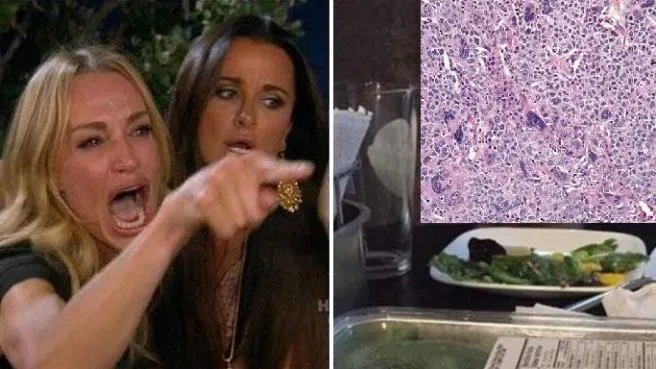Note: I express my own opinions here and in no way should these be taken as medical advise.
It’s been a recurring joke among colleagues especially those involved in the field of medicine where doctor-patient interaction is a constant thing. In Pathology, 9.5/10 of the time is spent talking to colleagues, histopathology clerk, or medical lab technician. So for clinicians that had to deal with a lot of patient interviews, hearing the joke about their patient’s Googling their disorders has become a common icebreaker.
Call it out of pride for one’s profession but it’s perfectly understandable to be annoyed when someone who isn’t in the same field be ultracrepidarian during clinic visits. Around 4 to 5 years is spent learning basic medical studies as a post grad and another 3 to 6 years is spent depending on how complicated the field one wants to specialize in. That’s a lot of headaches cramming those countless books to make a physician out of you only to be told Google says it’s different.

It's a meme I made back when I was just starting out and got no clue what the hell I'm looking at the microscope. The image is a Serous Carcinoma. My seniors asked how I was doing after seeing I got piled specimens on the lab and this was the response I made on the group chat.
Having experienced life on both sides, I couldn’t help but extend more patience for those that aren’t as informed. You see, if we search for a disease like Breast Cancer, an average person would go looking for links about articles that express signs and symptoms, general treatments, and nonspecific safe answers for their case. While a doctor will search for the same disease in mind but looking for the specific treatment plan suited for the patient’s condition. Non-physicians don't usually go searching for How Tumor Mapping is Done.
There are algorithms to almost everything. If a disease is stage II, then it gets this treatment route but if they are at stage IV then they get this other treatment route or run palliative. The common areas where a doctor Googles the answer are the diagnostic criteria endorse by WHO, their association, and empirical research that backs up the criteria in mind. On the other hand, an average patient may just be contented with clicking on an article from some Hospital’s frontpage with the content and an endorsement to try to seek help on this x institution if they believe they got the signs and symptoms, etc.
So yeah, in a way, we can Google Breast Cancer together but still looking at the problem from a different angle. And this phenomenon isn’t just between doctor-patient relationships as even doctors can have these conversations. When talking to OB-Gyne, Internal Medicine, Pedia, or Surgery residents about the same case, we tend to have our own ways to learning it based on how we are trained.
Let’s say where’ dealing with an Endometrial Carcinoma, from a pathologist perspective, we’d be concerned more on what type of the endometrial carcinoma that is as the treatment and prognostication differs between type 1 and type 2 (worse). We would assess the morphology and whether it fits into our criterion (based on WHO updates, what our association adheres to, and etc.). Once the results are released, the OB-Gyne Oncologist would read the histopath report and stage the patient’s case, decide on how to approach the case (based on WHO and their association’s guidelines) as economic and family matters may affect the decision to continue treatment. None of that stuff is no longer my concern unless they get a second opinion from another Pathologist somewhere and their opinions would differ.


The above are Type 1 Endometrioid Type, Endometrial Carcinoma. Most often occurring among women at the child bearing age group but can still happen on menopausal age groups. Normal tissue is at the bottom part while the bluish parts are the tumor. The more solid/tight it looks the more it spells bad prognosis.
Throughout the process, we tend to share information or inquire how the other field of specialty treats the same case. Same subject but viewed on a different lens. The field of medicine can be as broad to the point that we may work in a single room as an interdependent department but our cubicles prevent us from seeing how the other departments operate in a figurative way of course.
Having acknowledging this to be a common occurrence, it made me feel less bad on asking the medical lab technicians stationed at the histopath often. They know more about processing specimens and same goes for those operating at the Chem lab equipment that I often only get to know more about on the books.
